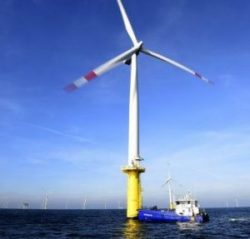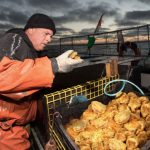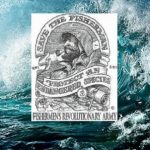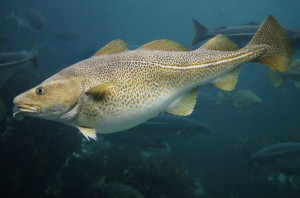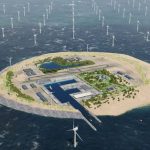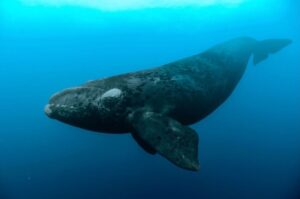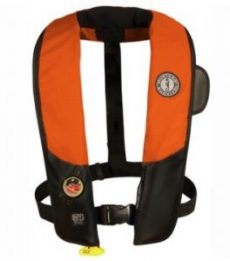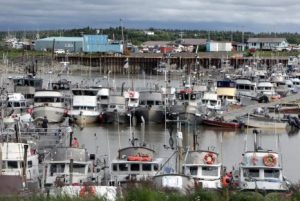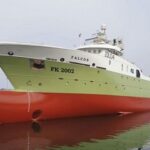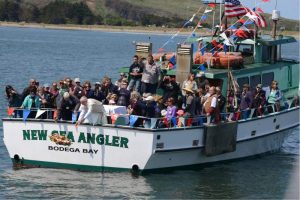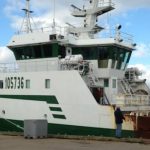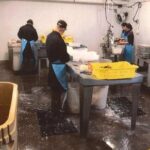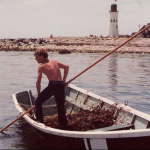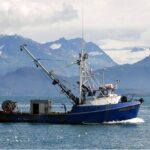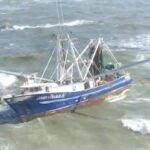Tag Archives: politics

She’s A Mom. What’s Your Superpower? An Interview with Representative Genevieve McDonald
In this interview, Genevieve McDonald tells us how she went from being a lobster boat captain to a state Representative of Maine, all while becoming a first time mom to beautiful twin daughters who motivate her to blaze a trail for women everywhere. Tell me a little bit about yourself. I am a member of the Maine House of Representatives and serve on the Joint Standing Committee on Marine Resources. My district is comprised entirely of islands off the coast of Maine. In addition to serving in the Legislature, I am a lobster boat captain out of Stonington, Maine, and a mom to twin daughters, Evalina & Elise. >click to read< 08:55
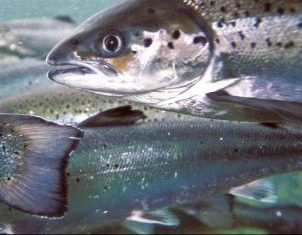
LETTER: ‘World class’ means something different in Newfoundland and Labrador. Smoke and Mirrors!
Here in Newfoundland and Labrador we routinely hear politicians and private industry speak of the “world class” qualities of whatever they are promoting. Whether it is megaprojects, various standards or qualities of whatever public or private business is involved — or just about anything it seems — our cup runs over with world class items. Here are a few examples: “The Muskrat Falls project is world class”; “The salmon aquaculture industry in Newfoundland and Labrador is world class” and recently, the new rules touted by our provincial government to regulate the aquaculture industry here are described as “surpassing the world as the place of best practise for aquaculture.” From the now six-week unfolding of the massive Fortune Bay farmed salmon die off,,, by David Downton >click to read< 09:33
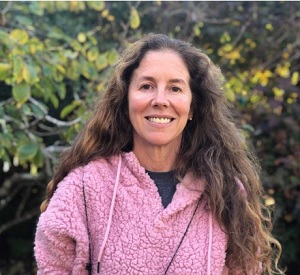
Bonnie Brady: A Diversity of Experience
“What you see is what you get,” is how Bonnie Brady, a longtime Montauk resident and EH Fusion Party candidate for East Hampton Town Board, described herself in an interview with Star staff this week. “I’d like to think of myself as a fair, honest person, someone who would work their butt off” for constituents. As executive director of the Long Island Commercial Fishing Association, Ms. Brady has long been a proponent of that industry’s interests, which in recent years means she is also a vocal opponent of the proposed South Fork Wind Farm, which fishermen fear will disrupt or destroy their livelihood. >click to read< 08:56

Port of Bellingham has key decisions to make. Two candidates want the chance to make them
Port of Bellingham commissioner races may appear below-the-radar compared to other offices, but they have a huge influence in shaping the future of Whatcom County.,, Below are details on the two candidates running for the district 3 position, which is a nonpartisan office that carries a four-year term. Commissioners are paid $8,400 a year. Bobby Briscoe, incumbent, 63, was raised in south Bellingham as a fourth-generation commercial fisherman. Anthony Distefano, 44, was born in eastern North Carolina, Background professionally is maritime, tourism, environmental advocacy/education and renewable energy projects. >click to read< 09:12
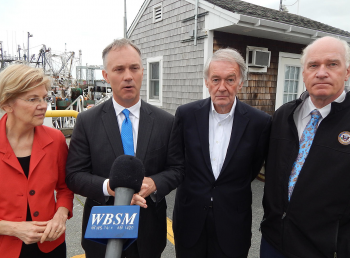
S.O.S. Howie Carr, New Bedford Needs You – “we need to get a message to Trump.”
Richard Canastra a member of the Massachusetts Governor’s Seaport Advisory Council, the New Bedford Economic Development Council, and the New Bedford Council on Commercial Fishing tells me U.S. Senators Elizabeth Warren and Ed Markey, both Democrats, have done zilch on a range of important issues critical to the industry, from funding of mandatory government monitoring to outdated data used to determine the strength of fishing stocks. Canstra says “we need to get a message to Trump.” Since Warren and Markey are completely ambivalent to the needs of the fishing community and refuse to speak with the president,,, >click to read< 17:41
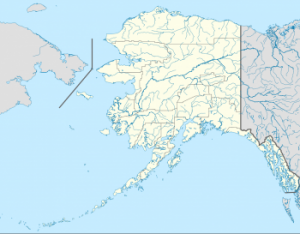
Boom or bust in Adak? Politics will decide
Adak is 1,200 miles west of Anchorage in the Aleutian Islands in the center of some of Alaska’s last “derby style” fisheries. Now, a great political struggle between some large Seattle-based corporate fishing companies and this Aleut community will determine whether Adak and it’s value-added approach to seafood development survives or if these valuable Alaska fisheries resources are simply added to the portfolios of the consolidated fishing companies. These large fishing companies already have exclusive Bering Sea and Aleutian Islands fishing privileges with an aggregate value in excess of $2 billion. In contrast, if Adak and Alaska lose this struggle, the community is not likely to survive. >click to read< 18:58
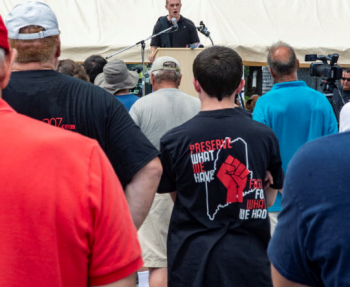
Right whale discussion must not be trapped in political posturing
The state’s recent decision to buck the federal government, and to pursue its own assessment of the risk to right whales from lobster trap lines in the water, is warranted. Science, not politics, needs to guide this effort.,,, We’ve seen on the West Coast how legal pressure from environmental groups can close entire fisheries early, as it did for California crab this year. That does not mean Maine should roll over on the proposed federal regulations without science demonstrating that new regulations would be commensurate with the actual risk to whales posed by trap lines in Maine waters. >click to read< 08:28

Two years after CETA took effect, fisheries minister says Tory exemptions devalued the industry
In 2013, negotiations between Canada and the European Union over the Comprehensive Economic and Trade Agreement, or CETA, included talks on how Newfoundland and Labrador might be compensated for losses once the deal was implemented. The provincial PC government of the time insisted on a $400-million compensation program, noted Byrne. “I can certainly understand why they’d take that position,” Byrne said. But that fund never materialized, >click to read<10:56
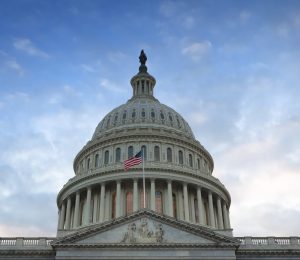
Casting a line for congressional candidate’s fishing perspective
The following is a personal opinion and should not be implied as an endorsement of any candidate. I’ve read and heard many comments prior to and after the primary election but merely want to put out my thoughts from a commercial fishing perspective for what they’re worth. Last month’s primary whittled down 17 Republicans to 2; 6 Democrats to 1; and 2 Libertarians to 1. From a commercial fishing standpoint, where does that leave us? On the Republican side we have Greg Murphy and Joan Perry. Democrats have selected Allen Thomas and Libertarians have Tim Harris. Of those, all responded to the questionnaire sent out by NCFA except for Allen Thomas even though he was reminded of it. by Jerry Schill >click to read<08:36

Politicians mum on fisheries during election campaign, says advocate
Kimberly Orren works to spread knowledge of the fishery’s place in Newfoundland and Labrador’s culture, but says politicians haven’t been spreading much of anything about the industry during this ongoing election campaign. Orren, a board member of the non-profit social enterprise Fishing For Success, said she’s been disappointed by the lack of talk she’s perceived. “There’s been no discourse about the fishery or fishing in the election talks so far. And I’m wondering where is it?” >click to read<09:24
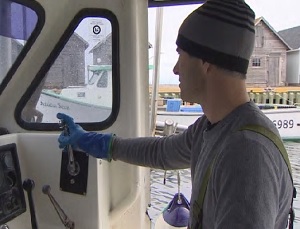
Rules around fishing licences, cabinet ministers ‘frustrating’ for PC MLA
PC MLA Sidney MacEwen said he watched nine of his colleagues sworn in as cabinet ministers in Georgetown yesterday with mixed emotions. MacEwen believes he and fellow PC MLA Colin LaVie faced an unfair — though perhaps not insurmountable — obstacle barring their way from cabinet: the two are fishermen. P.E.I.’s Conflict of Interest Act requires cabinet ministers put their business holdings in a blind trust. MacEwen said he spoke to P.E.I.’s conflict of interest commissioner and was told he would be in compliance if he put the corporation under which he owns his lobster licence into a blind trust. The problem, MacEwen said, is with DFO’s owner-operator policy, which dictates the person who owns a fishing licence has to be the one who fishes under it. >click to read<12:13
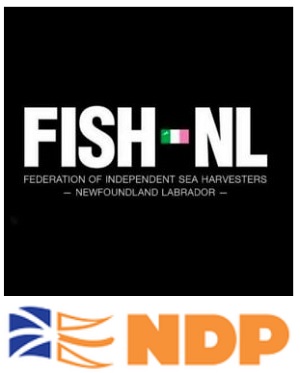
FISH-NL – Harp seals and outside buyers not on list of fishery issues NDP prepared to ‘champion’
While the province’s New Democratic Party supports the principle of adjacency, moving away from “environmentally destructive” sea-cage aquaculture, and is “deeply concerned” about the impact of offshore seismic activity, Leader Alison Coffin doesn’t address other inshore fishery issues including harp seals and outside buyers. “The NDP is the first to respond to FISH-NL’s survey of provincial parties on the subject of the inshore fishery,” says Ryan Cleary, President of FISH-NL. “But not all questions were responded to, which probably says as much as a direct answer.” On May 3rd, FISH-NL sent eight questions to the leaders of each of the four political parties running in the May 16th provincial election: >click to read<16:39
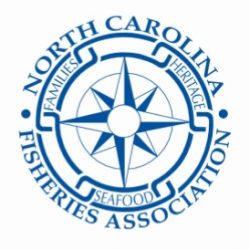
North Carolina’s 3rd Congressional District candidate Phil Law Responds to N.C. Seafood Industry questions
Phil Law (Republican) is a candidate for North Carolina’s 3rd Congressional District in the U.S. House. Law is running in the primary on April 30, 2019. The general special election is September 10, 2019. Note: The general election will be held July 9, 2019, if no primary runoff is needed.,,, Question 5.) What do you think of windfarms in the ocean off our coast? I do not favor this idea. >click to read< 13:33
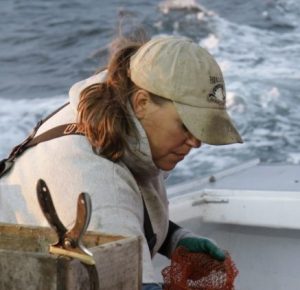
Commercial lobsterman and new mom Genevieve McDonald wins District 134
“I’m excited to get to work,” McDonald said from Route 1 as she headed home on Wednesday. “I’m excited to serve under Maine’s first female governor.” District 134 represents the towns of Southwest Harbor, Tremont, the Cranberry Isles, Swan’s Island and Frenchboro. McDonald defeated Brady in all towns except Swan’s Island, where Brady had 11 more votes in a 109–98 tally. In every other town McDonald had the majority vote, often nearly twice the vote for Brady. >click to read<12:20
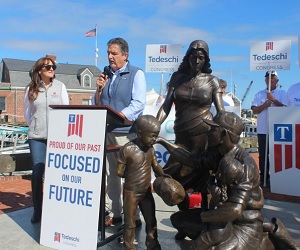
Tedeschi says Keating underperforms for fishing industry
Republican Peter Tedeschi, the convenience store magnate and Republican candidate for congress in the Massachusetts 9th District, staged a small rally on the waterfront next to the fishing family sculpture Saturday and took aim at incumbent William Keating for what Tedeschi says are deficiencies in Democrat Keating’s job performance. About 20 supporters either arrived with him on a district-wide tour, or came out locally to hear him. He told The Standard-Times in an interview that mirrored his prepared comments, “I don’t believe that the fishermen down here and the fishing industry are getting adequate support from our current congressman. And that manifests itself in several ways.” >click to read<20:02
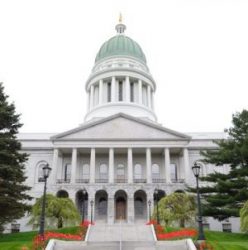
Fishermen running for office: Poverty, opioid crisis are issues in all-Winter Harbor House race
In the District 136 House race Downeast, the candidates are both Winter Harbor natives. Both have served as selectmen, both have been lobstermen. Democrat Kylie Bragdon, “Winter Harbor born and bred,” grew up on the water and now fishes when she can but works as the principal of KidsPeace in Ellsworth.,, The Republican in that race is William “Billy Bob” Faulkingham. It is clear that this man cares about his family, his community and fishing. His campaign material describes him as “Father – Veteran – Fisherman,” in that order.,, District 134 (Deer Isle/Stonington) features a lobsterman too. Genevieve McDonald of Stonington runs F/V Hello Darlings II and is full of enthusiasm for serving in the Legislature, with the opportunity to work toward collaboration between managers, scientists and fishing communities. >click to read<15:30
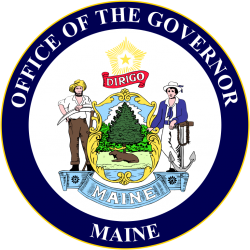
Maine Gubernatorial candidates vow to back lobster industry in upcoming fight
All four candidates for governor pledged to defend Maine’s $434 million-a-year lobster industry a week before regulators consider new rules that could severely affect the industry. Specifically, the candidates addressed onerous right whale protections that environmental groups are seeking in court now from the National Oceanic and Atmospheric Administration, proposals such as moving from a rope-based industry to a ropeless fishery, seasonal closures of western Gulf of Maine lobster fishing in April, and cutting in half the number of traps or vertical lines that could entangle whales. Independent Alan Caron, Democrat Janet Mills, Republican Shawn Moody and independent Terry Hayes took turns answering some questions, dodging others and hailing the importance of Maine fisheries,,, >click to read<21:08
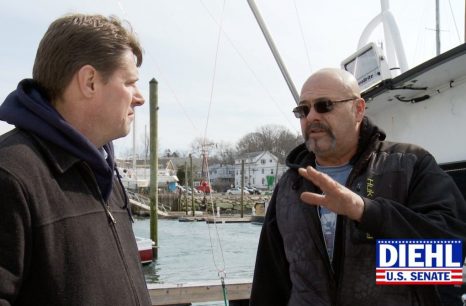
Captain Dave Marciano Endorses Geoff Diehl for the United States Senate
“I’m endorsing Geoff Diehl for U.S. Senate for the simple reason of the abject failure of our current representation. Under her watch, as well as others, we have lost thousands of fishing industry and related jobs the past 8 years,” said Marciano. “If current representatives were graded on how well they represent the fishermen in the Commonwealth, it would be an F. In the fishing industry if you fail to do your job you are “ off the boat.” The current Senator needs her walking papers or swimming papers as the case may be due to her failure to protect fishing industry and related jobs. She sat back and watched the middle class fishing families be destroyed by out of control government,” added Marciano. >click to read<16:53
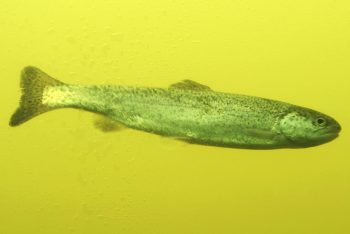
The politically unifying potential of salmon
If there is any issue Democrats and Republicans in Washington State should come together on, it’s salmon. Salmon play a major role in our state’s economy, wildlife diversity and cultural heritage. In Washington alone, salmon help support nearly 16,000 jobs and a $1.1 billion annual fishing economy. Salmon alone provide over 134 million dollars of economic output to Washington state each year. They’re also a keystone species to 137 other animals, including orcas and bears. Unfortunately, the lowest counts of Pacific Northwest salmon in history — and a 60 percent decrease in the population since 1984 — now significantly threaten the essential role of salmon. >click to read<08:58
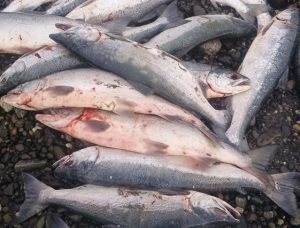
Smoke-filled rooms
With the fishing season beginning in the 49th state, Alaska Gov. Bill Walker has been holding private meetings to forge an agreement between commercial, sport and other fishing interests on how to manage salmon in Cook Inlet. The reason why is unclear. By law, the regulation of state fisheries falls solely under the jurisdiction of the Alaska Board of Fisheries. One of the first acts of the Alaska Legislature after Statehood in 1959 was to establish a Board of Fish and Game – later split into the separate boards for fish and wildlife management – to insulate resource decisions from backroom politicking. >click to read<10:37
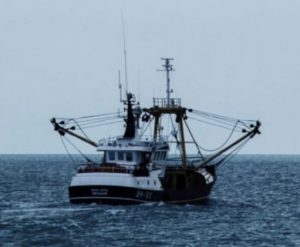
The understandable anger of British fishermen
When the fisheries-rich countries of the North Atlantic applied to join the EEC in the early 1970s, it was an opportunity for ministers in Brussels that was too good to miss. To the nervous embarrassment of the Dutch, a last minute deal was pushed through that bolted the resources of national fishing grounds onto the scanty treaty provisions that covered trade in fish produce. It was a shoddy fix and, it turned out, a major scandal at least for one of the applicant states. Norway’s fisheries minister resigned in protest, and the Norwegians voted against accession. But the UK did not. In 1973, the country joined the Brussels club. Ted Heath’s people accepted the stitch up as a political price worth paying – one of many, it might be said. And thus was created the original sin behind UK membership. >click to read<19:26
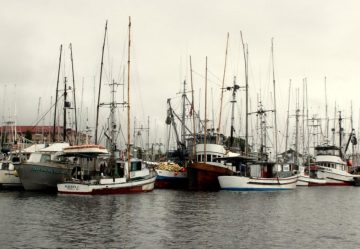
Forum to examine politics behind Alaska’s chinook conservation problem
Southeast salmon fishermen are pushing back against deep restrictions in the king harvest this season, saying the problem is as much political as it is biological. The fishing advocacy group Chinook Futures Coalition is holding a forum in Sitka this Wednesday afternoon (3 p.m. – 5 p.m. Wednesday, March 21, Harrigan Centennial Hall) to shed light on how negotiations with Canada have disadvantaged Alaskan fishermen — even as the state works to address a serious conservation problem.>click to read< 21:19
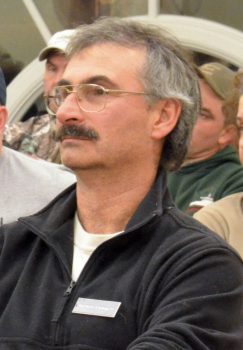
Walter Kumiega announces Maine Senate run
Rep. Walter Kumiega (D-Deer Isle) has announced his candidacy for the Maine Senate in District 7 (most of Hancock County). Kumiega has been a member for the Maine House for the past eight years. He would replace Sen. Brian Langley, whose term expires this year. If elected to the Senate, Kumiega would continue to chair the Marine Resources Committee, a task vital to Hancock County. Kumiega also would seek to be the legislative commissioner to the Atlantic States Marine Fisheries Commission. >click to read< 11:51 
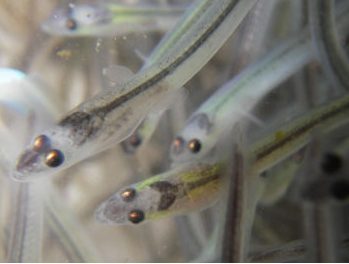
Tiny glass eel draws big money, political muscle and poachers
During the past few years, the GOP-controlled General Assembly has slashed the North Carolina Division of Marine Fisheries budget by about 40 percent, leaving departments understaffed and some employees bending under heavy workloads. At the same time, a review of more than 3,000 public documents shows that several elected and former state Department of Environmental Quality officials prompted what appears to be hundreds of hours of DMF time finding ways to justify obtaining a share of the federal glass eel quota to benefit just one company in Jones County — American Eel Farm, owned by Rick Allyn. click here to read the story 11:26
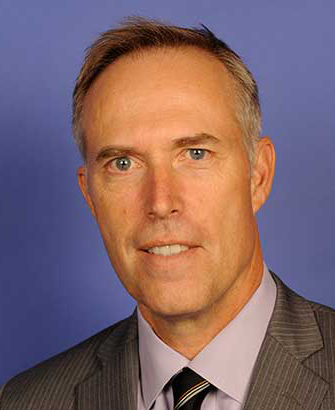
Spending bill leaves out West Coast fishing disaster funds
California 2nd District Congressman Jared Huffman (D-San Rafael) voted against the bill and said the spending bill represents the “latest example of a congressional leadership that refuses to lead.” “Democrats want to make sure that we have equal bargaining, and we’re not going to allow things like disaster relief go forward without discussing some of the other issues we care about,” said powerful Senate Minority Leader Chuck Schumer, D-N.Y. click here to read the story 14:13
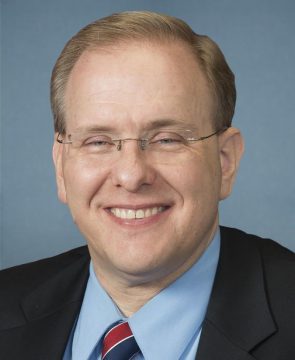
Caiozzo Questions Langevin’s Support for Fishing Industry in RI
Republican candidate for Rhode Island’s Second Congressional District Sal Caiozzo is questioning the support being offered by Congressman Jim Langevin for the commercial fishing industry in Rhode Island. “For the past two years I’ve gone to D.C. and fought for Rhode Island’s commercial fisherman. I’ve made several day-long trips on commercial fishing vessels, I’ve met with fishermen, industry leaders and congressmen from states with a commercial fishing industry urging them to hear the plight of fishermen and stop over-regulating the industry. click here to read the story 09:02
Editorial: Fishermen should look for smart ways to survive
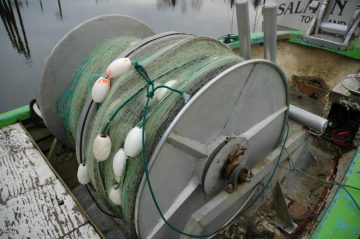 As spring Chinook salmon congregate in the ocean around the mouth of the Columbia River in anticipation of their ancient migration to upriver spawning grounds, this spring also sees a swirling conglomeration of politics in Oregon and Washington state over how to allocate salmon among different interests. In some ways nothing new, in other respects the fight over salmon is rising to a higher pitch. Increasingly involving elected leaders, the outcome is becoming even less predictable. Also unclear is where a majority of Oregon and Washington state voters stand on the issue. The key point of recent news in the matter is the Oregon Fish and Wildlife Commission’s unanimous vote to curtail gillnet fish harvests, altering an earlier decision that was more favorable to commercial fishermen. Bullied into the decision by Gov. Kate Brown, the commission backed away from its earlier acknowledgment that the states have so far failed to keep a promise made by the Oregon Legislature to ensure the continuing economic viability of the commercial fleet. Alternative fishing methods have proven ineffective, alternative fishing grounds are in short supply, and money has been slow to arrive to aid transition away from the decades long gillnetting tradition. continue reading the op-ed here 16:20
As spring Chinook salmon congregate in the ocean around the mouth of the Columbia River in anticipation of their ancient migration to upriver spawning grounds, this spring also sees a swirling conglomeration of politics in Oregon and Washington state over how to allocate salmon among different interests. In some ways nothing new, in other respects the fight over salmon is rising to a higher pitch. Increasingly involving elected leaders, the outcome is becoming even less predictable. Also unclear is where a majority of Oregon and Washington state voters stand on the issue. The key point of recent news in the matter is the Oregon Fish and Wildlife Commission’s unanimous vote to curtail gillnet fish harvests, altering an earlier decision that was more favorable to commercial fishermen. Bullied into the decision by Gov. Kate Brown, the commission backed away from its earlier acknowledgment that the states have so far failed to keep a promise made by the Oregon Legislature to ensure the continuing economic viability of the commercial fleet. Alternative fishing methods have proven ineffective, alternative fishing grounds are in short supply, and money has been slow to arrive to aid transition away from the decades long gillnetting tradition. continue reading the op-ed here 16:20
Hooked Up!!! Catch Share Politics – ‘Sea Lords’ hook a congressional reformer
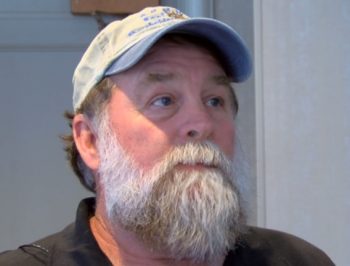 Steve Southerland agrees: He was something of a threat to some commercial fishermen. The former Florida congressman led the effort to change a federal program (catch shares) – unknown to most taxpayers – that allows a handful of businesses and fishermen to make millions off a government resource, creating what some fisherman call “lords of the sea.” The government essentially decides who will be a successful commercial fisherman and who will not.” And it doesn’t matter how hard you work,” Southerland says. “It doesn’t matter, you know, how much money you have to… That you’ve borrowed. It’s all based on a philosophy. And if you believed in that philosophy, then you win.” Southerland took to the floor of Congress, trying to make changes. In response, the same commercial fishermen profiting off this government resource poured tens of thousands of dollars into the campaign account of Southerland’s congressional opponent. Those same fishermen contributed additional money to a political action committee called Ocean Champions that also went after Southerland. “I think that it was a group of fishermen that worked towards that,” says Galveston, Texas commercial fisherman Buddy Guindon. “Mostly guys out of Florida. I didn’t have much to do with it. I contributed a little money to them.” Video, Read the story here 08:25
Steve Southerland agrees: He was something of a threat to some commercial fishermen. The former Florida congressman led the effort to change a federal program (catch shares) – unknown to most taxpayers – that allows a handful of businesses and fishermen to make millions off a government resource, creating what some fisherman call “lords of the sea.” The government essentially decides who will be a successful commercial fisherman and who will not.” And it doesn’t matter how hard you work,” Southerland says. “It doesn’t matter, you know, how much money you have to… That you’ve borrowed. It’s all based on a philosophy. And if you believed in that philosophy, then you win.” Southerland took to the floor of Congress, trying to make changes. In response, the same commercial fishermen profiting off this government resource poured tens of thousands of dollars into the campaign account of Southerland’s congressional opponent. Those same fishermen contributed additional money to a political action committee called Ocean Champions that also went after Southerland. “I think that it was a group of fishermen that worked towards that,” says Galveston, Texas commercial fisherman Buddy Guindon. “Mostly guys out of Florida. I didn’t have much to do with it. I contributed a little money to them.” Video, Read the story here 08:25






